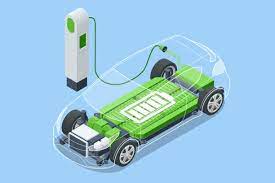
The electric vehicle (EV) revolution is fueled not only by the shift towards sustainable transportation but also by continuous innovations in the components that make up these eco-friendly machines. From advanced powertrains to cutting-edge battery technology, the electric vehicle industry is witnessing a wave of innovations that are reshaping the way we think about mobility. This article explores some of the groundbreaking innovations in EV components that are driving the transformation of the automotive landscape.
Read: A Guide To Buying An EV
- High-Efficiency Electric Motors:
One of the key components propelling electric vehicles into the mainstream is the electric motor. Innovations in motor design focus on increasing efficiency, reducing weight, and enhancing power output. Permanent magnet motors and silicon carbide (SiC) power electronics are among the innovations contributing to more compact and powerful electric motors, enabling improved range and performance.
- Next-Generation Batteries:
Advancements in battery technology are at the forefront of EV innovations. Researchers and manufacturers are working on improving the energy density, charging speed, and lifespan of batteries. Solid-state batteries, which replace the traditional liquid electrolyte with a solid material, hold promise for delivering higher energy density, enhanced safety, and faster charging times, addressing some of the key challenges in electric vehicle adoption.
Read: Wireless battery management system for EVs.
- Advanced Battery Management Systems (BMS):
Battery Management Systems play a crucial role in optimizing the performance and longevity of electric vehicle batteries. Innovations in BMS technology involve real-time monitoring, predictive maintenance algorithms, and thermal management systems. These enhancements not only extend the life of the battery but also contribute to safer and more reliable electric vehicles.
- Lightweight Materials and Structures:
Reducing the overall weight of electric vehicles is essential for maximizing efficiency and range. Innovations in materials, such as carbon fiber composites and high-strength aluminum alloys, are being incorporated into vehicle designs to achieve weight savings without compromising safety. Lightweight structures contribute to improved energy efficiency and handling in electric vehicles.
- Regenerative Braking Systems:
Innovations in regenerative braking systems aim to recover and store energy during braking, improving overall energy efficiency. Advanced regenerative braking technologies, including brake-by-wire systems and predictive braking algorithms, optimize the capture of kinetic energy during deceleration, feeding it back into the battery for later use.
- Smart Charging and Energy Management:
As electric vehicles become more prevalent, innovations in smart charging solutions and energy management systems are essential. These technologies enable users to schedule charging during off-peak hours, balance energy loads, and integrate with renewable energy sources. Smart charging infrastructure is pivotal in creating a more sustainable and grid-friendly electric vehicle ecosystem.
See: Unleashing Potential with Second-Life Electric Vehicle Batteries.
- Thermal Management for EVs:
Maintaining optimal operating temperatures is crucial for the efficiency and longevity of electric vehicle components. Innovations in thermal management include advanced cooling systems for batteries, motors, and power electronics. Liquid cooling and phase-change materials are being employed to manage heat effectively, ensuring consistent performance and safety under varying conditions.
- Autonomous Driving Integration:
While not exclusive to electric vehicles, the integration of autonomous driving technologies is a notable innovation reshaping the automotive landscape. Electric vehicles often serve as platforms for advanced driver-assistance systems (ADAS) and self-driving capabilities, enhancing safety and expanding the possibilities of future mobility.
Read: Electric Cars the Future of The Auto Industry
Conclusion:
The innovations in electric vehicle components are propelling the industry towards a sustainable and technologically advanced future. As electric vehicles become more mainstream, continuous advancements in motor technology, battery systems, lightweight materials, and smart infrastructure will contribute to the ongoing evolution of clean and efficient transportation. These innovations not only redefine the driving experience but also underline the commitment of the automotive industry to a greener and more sustainable future.




